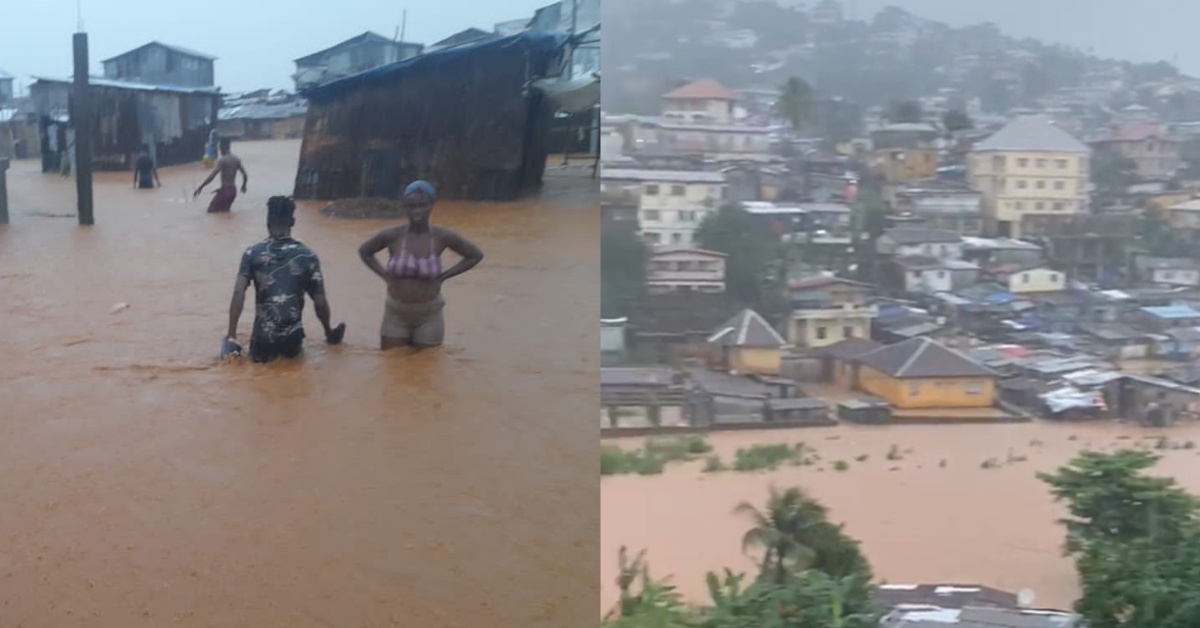Freetown, the vibrant capital city of Sierra Leone, faces an annual challenge that disrupts the lives of its residents and threatens their safety and well-being—the perennial flooding that occurs during the rainy season.
While Freetown boasts natural beauty and a rich cultural heritage, the devastating effects of flooding have become a recurrent nightmare for its inhabitants.
This article explores the impact of this recurring disaster on the residents of Freetown, highlighting the challenges they face and the urgent need for sustainable solutions.
Loss of Life and Displacement
One of the most heartbreaking consequences of Freetown’s perennial flooding is the loss of lives. Heavy rains and inadequate drainage systems lead to flash floods, triggering landslides that bury homes and sweep away people. Entire neighborhoods are submerged, forcing residents to flee their homes in search of safety. Displaced individuals are often left without proper shelter, food, or clean water, exacerbating their vulnerability and increasing the risk of disease outbreaks.
Destruction of Homes and Infrastructure
Flooding in Freetown takes a heavy toll on infrastructure and homes. Roads are washed away, bridges collapse, and buildings are damaged or destroyed, disrupting transportation networks and isolating communities. Many residents are left homeless, exacerbating an already severe housing crisis in the city. The destruction of vital infrastructure further hampers access to basic services such as healthcare, education, and clean water, perpetuating a cycle of poverty and instability.
Health and Sanitation Challenges
Flooding in Freetown poses significant health risks to its residents. Contaminated floodwaters become breeding grounds for waterborne diseases, including cholera, typhoid, and dysentery. The lack of proper sanitation facilities and overcrowded makeshift shelters further exacerbate these risks. Inadequate access to clean water, hygiene supplies, and healthcare services leads to a surge in illnesses, particularly among vulnerable groups such as children and the elderly.
Economic Hardships
The repeated flooding events in Freetown take a heavy toll on the local economy. Small businesses are severely affected, with many losing their livelihoods due to damaged infrastructure and disrupted supply chains. The agriculture sector, a critical source of income for many residents, also suffers as fields are washed away and crops are destroyed. The loss of jobs and income perpetuates a cycle of poverty, hindering the city’s overall development and leaving its residents struggling to recover from each flood.
Psychological Impact
Beyond the immediate physical and economic consequences, perennial flooding in Freetown also inflicts a deep psychological toll on its residents. The trauma of losing loved ones, witnessing destruction, and being uprooted from familiar surroundings takes a significant toll on mental health. The fear and anxiety associated with each rainy season further compound the psychological distress, leaving a lasting impact on individuals and communities.
Conclusion
Freetown’s perennial flooding continues to pose immense challenges for its residents, affecting their lives, safety, and well-being. Urgent action is required to address the underlying issues that contribute to this recurring disaster. Investing in improved drainage systems, early warning systems, and resilient infrastructure can help mitigate the impact of flooding and safeguard the lives and livelihoods of Freetown’s residents. Moreover, supporting initiatives focused on disaster preparedness, urban planning, and community engagement is crucial to building the city’s resilience and empowering its residents to face the challenges posed by the rainy season. (Ultram) By prioritizing these efforts, Freetown can gradually overcome the cycle of devastation and create a safer, more prosperous future for all its inhabitants.











